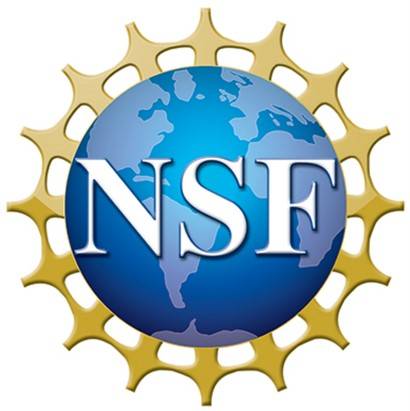We received the NSF CAREER Award!

The Bharti Research Group was awarded by the NSF with the CAREER grant. The Faculty Early Career Development grants these awards to early-career faculty with “the potential to serve as academic role models in research and education and to lead advances in the mission of their department or organizations”.
We are very thankful to the NSF for this prestigious award, which will serve as the funding source for our research in active and responsive materials. Further information on this award can be found on the NSF website.
Abstract:
In order for micro- and nano-scale robotic devices to carry out their functions, they will have to be able to navigate complex spatial environments. These little machines will encounter gravitational and thermal forces that can be significant at very small length scales. As a result, their motion can be either confined to two dimensions or completely randomized, which will limit their functions. This CAREER award will study experimentally the motion of a specialized particle that is capable of self propulsion as a model robotic device. The studies of these particles will reveal principles that can be used to enable their spatial navigation through porous matrices. The project will start by finding the optimal particle shape and surface characteristics to direct the motion of the particles in an external alternating current electric field. The resulting particles will perform preprogrammed motions that mimick the trajectories of natural active biological matter such as spermatozoid, microorganisms and motor proteins. The correlation between the particle trajectories and their ability to tunnel across porous membranes will be determined, and the results will form the basis for designing autonomous particles to enhance transport through structured environments, such as extracellular matrices and porous rocks. The research will be enhanced by complementing it with educational efforts for graduate and undergraduate students and outreach activities for visually impaired children. The research will be incorporated into chemical engineering curricula through a new section in an elective course entitled “Colloids and Interfacial Engineering”. The CAREER award will provide research opportunities for undergraduate students at Baton Rouge Community College and outreach activities for visually impaired students at the Louisiana School for the Visually Impaired.
This CAREER award seeks to answer a fundamental question in particle transport: What is the effect of a particle’s motion on its ability to navigate spatially through porous media? The project will address the question by examining the motion of metal patched microspheres that are self-propelled in aqueous media by AC-electric-field-driven induced charge electrophoresis. The project aims to (1) Develop an understanding of the structure-kinematic relationship for active colloids and elucidate the roles of particle and patch symmetry on colloid trajectories; (2) Establish the basis for guiding the directional propulsion of colloids and identify the relation between the particle’s spatial orientations and its trajectories; and (3) Develop new principles for enhanced spatial navigation by understanding the relation between particle trajectory and its tunneling efficiency through porous membranes. The award will present new methods of guiding active particle kinematics in an AC electric field and will apply this knowledge to navigate complex structured environments. The principles of efficient spatial navigation using nonlinear particle trajectories may not be limited to colloidal transport; they may also to diverse problems, such as pedestrians navigating through crowds.